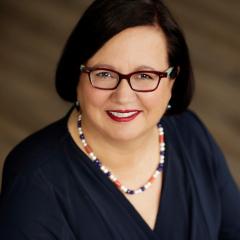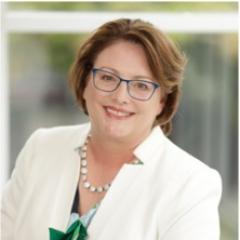Teams across QCPRRC and AusCP-CTN bring together international leaders in the field of CP on epidemiology, neuroprotection, genomics, neuroscience, early detection, rehabilitation, automated surveillance with a track record of >50 randomised clinical trials (RCTs) of interventions, three international Clinical Practice Guidelines and best practice implementation studies. These networks combine internationally recognised teams at The University of Queensland, Cerebral Palsy Alliance & University of Sydney, CSIRO, Westmead Children’s Hospital; Monash University/Monash Children’s Hospital; Telethon Kids Institute/Curtin University/Perth Children’s Hospital and the University of Auckland/Starship Children’s Hospital; linked to state-wide CP clinical teams enabling capacity building across four states. The network collaboratively achieved a 30% reduction in CP incidence, resulting in Australia having the lowest rate of CP worldwide. Now, children at high risk of CP will be detected in the first 3-6 months of life (using our early diagnosis guideline, paired with new universal screening) and fast tracked to receive early evidence-based rehabilitation in multi-centre clinical trials, underpinned by enhanced value-based care. Our previous clinical trial findings will be implemented into practice and policy through our clinical practice guidelines, mobile health aides and partnership with the NDIS. Improvement in outcomes and enhanced healthcare will be measured on our population Australian Cerebral Palsy Register. The overall network builds on over 20 years of active collaborations, and have collaboratively achieved $160M+ competitive research funding.
In 2022, the team was awarded with two prestige awards from NHMRC,
- NHMRC Centre for Research Excellence ($3M; 2022-2026) for DRIVE CP: Direct Research Into Very Early Cerebral Palsy. Cerebral Palsy (CP) is common (1 in 700) and the cost is immense (0.14% GDP). The rate has fallen by 30% meaning more is possible. Our CRE is co-designed with consumers to directly address the priorities set by consumers in our National CP strategy. Together we will diagnose CP early through a national screening program, then develop and transmit new early interventions, that reduce severity and improve independence. We will use artificial intelligence to automate screening for diagnosis. The new injection of CRE and Clinical Trials funding will facilitate collaborations with the broader Australasian Cerebral Palsy Clinical Trials Network community, allowing teams to further expand findings from our previous studies (PPREMO/PREBO, REACH, GAME, PACT/Early PACT), in testing new interventions (HABITILE, Preschool HABITILE, LEAP-CP, RUN4 Health, and PEERS) to improve the outcomes and quality of life of families of children with CP.
Chief Investigators: CIA Prof. Iona Novak, CIB Prof. Ros Boyd, CIC A/Prof. Leanne Sakzewski, Dr Dana Bradford, Prof Michael Fahey, Prof Nadia Badawi, Prof Tracy Comans, Dr Catherine Morgan, Prof Alicia Spittle, Prof Svetha Venkatesh.
Associate Investigators: Prof Robert Ware, Dr Qing Zhang, Dr Vuong Le, Prof Gulam Khandaker, Prof Catherine Elliott, Dr Koa Whittingham, Prof Paul Colditz, Prof Linda S de Vries, Dr Alex Pagnozzi, and
Investigators at Cerebral Palsy Alliance, The University of Queensland, Monash University, University of Melbourne, Deakin University, Griffith University, Curtin University, Queensland Government Department of Health, University Medical Center Utrecht and CSIRO Australian e-Health Research Centre.
- NHMRC Partnerships Grant ($3M; 2022-2026) for TRANSMIT: multifaceted knowledge TRANslation Strategy iMprovIng funcTion in children and youth with cerebral palsy. One third of children with cerebral palsy (CP) will never walk, and one quarter will never talk. These children receive ineffective treatments 43% of the time, lowering their chance of employment. The TRANSMIT team will build a mobile health aides that filters effective intervention options for children with CP, that overcomes the need to understand complex health information, and that supports consumers to choose, clinicians to provide, and policymakers to reimburse effective treatments. Cerebral palsy (CP) is the most common physical disability of childhood, the 5th most common cause of childhood death, and Australia’s 5th most expensive healthcare condition. CP is lifelong with no known cure. 43% do not receive known effective interventions, and 20% receive harmful or ineffective care; resulting in lost opportunity that decreases the likelihood of long-term independent living and employment– the chief object of the National Disability Insurance Scheme (NDIS). Children with CP and their families need us to urgently close the gap, between what is known from research, and what is done in clinical practice. Our partnership will close the research-practice gap using evidence-based multifaceted knowledge translation (KT) strategies. Our partnership has already: (1) reduced the rate of CP by 30%, resulting in Australia having the lowest rate of CP worldwide; (2) lowered the age of diagnosis from 19-months to 3-months enabling earlier intervention; (3) discovered 10 new treatments; (4) mapped what interventions work and what doesn’t; and (5) calculated the effective dose. We now propose a mobile health aide (mHealth) that streamlines and filters evidenced-based intervention options for children with CP, inclusive of 5 KT strategies that directly overcome implementation barriers identified by our 3 stakeholder groups – consumers, clinicians, and policymakers. The anticipated outcomes from our 3-tiered KT approach are a 10% improvement in function (independence of daily living) to expedite long-term independent living and employment, and a 20% reduction in NDIS costs. Our solution is highly responsive to the priorities of government, the community, and clinicians. In partnership with the NDIS, Cerebral Palsy Alliance, NSW Health, Vic Health, QLD Health, University of QLD, International Alliance of Academies of Childhood Disability and Montreal University, we will reach 100% of the Australian CP population and ultimately all people with CP worldwide.
Chief Investigators: Prof. Iona Novak, Prof. Nadia Badawi, Dr Catherine Morgan, A/Prof. Leanne Sakzewski, Prof. Roslyn Boyd, Prof. Michael Fahey Prof. Joshua Burns, Dr Michelle Jackman, Dr Dana Bradford and Dr Maria Mc Namara.
Investigators at Cerebral Palsy Alliance, The University of Sydney, The University of Queensland, Monash University, Westmead Children's Hospital, University of Melbourne, and CSIRO Australian e-Health Research Centre.
For more information about our projects and collaborative opportunities, please contact Prof. Roslyn Boyd, qcprrc@uq.edu.au.



